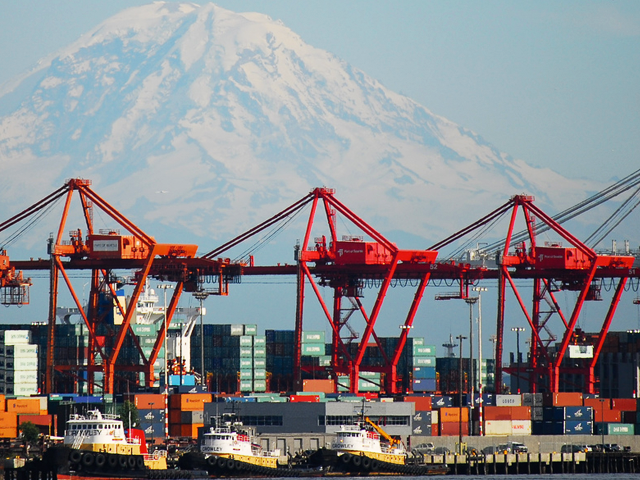How Seattle Created Schools for the Future

SEATTLE, February 4, 2011 — Seattle's busy port, with its colorful cranes and massive cargo shipping facilities, is one of the largest in the United States. The port generates some $12 billion in business revenue each year, mostly from trade with Pacific Rim countries. It's quite a view from the Seattle Public Schools headquarters just three blocks away.
About 15 years ago, John Stanford, took the helm of Seattle Public Schools. Unlike many of his peers around the country, he was not an educator. But he was a visionary.
From day one, he proposed that central-office staff spend one day a week helping in schools. Guided by the demands of a global economy and the diverse student population the public schools served, Stanford recommended a mandatory requirement for students to study a second language and proposed an international language school. Fast-forward a decade, his vision has led to Seattle creating a network of international schools, featuring immersion programs and curriculum that prepares students to be globally competent in the 21st century knowledge economy.
To create the first school, Stanford tapped Karen Kodama, a veteran educator, to lead the school creation work. Kodama studied and visited several school models, but didn't believe any fit Seattle's desire for a place where second languages (English or otherwise) are a core component of an international studies focus. Kodama and a group of parents and educators worked with local businesses—the future employers of Seattle public schools graduates—to understand the knowledge and skills needed to serve the local market. These businesses included international giants as well as smaller businesses working locally.
Based on their findings, the district identified key components for an international school:
- All students are to become proficient in English and at least one other language.
- Global perspectives are not an add-on. They are included in all content areas, including math, science, physical education, and the arts. In this way, global competence is intentionally integrated into the way teachers teach their curriculum and how students learn it.
- Academic achievement is essential and all state and district standards must be met.
- Effective use of technology, as per Stanford’s vision, is critical. The school would have state of the art technology and it would be used consistently in the classroom to promote global learning and connections - everything from iEARN projects to videoconferencing with children in other countries.
- Partnerships are of vital importance, not only with parents, community leaders, and businesses, but also with higher education and international partnerships with sister schools.
Sadly, the first international school opened after Stanford lost his battle against cancer. The John Stanford School for International Studies quickly became the top-ranked and most popular school in the district. In the years since, Seattle has created pipeline programs so bilingual elementary students can continue their education in middle and high school. Learn more about the schools by visiting the school websites:
- John Stanford International School, an elementary school, the first of the international schools, opened in 2000.
- Hamilton International School, the first middle school in Seattle, became an international school in 2001.
- Beacon Hill International School, the second elementary school, opened in 2008.
- Denny International School (middle school) and Concord International School, (elementary school) were designated international schools in the fall of 2009.
- Chief Sealth International High School, the first International High School, opened fall of 2010
In 2007, Seattle Public Schools announced plans to create a network of 12 international studies schools mostly at the elementary level, with ideas of creating a similar network of middle and high schools in the future.
Kodama, who heads the district's international schools program, credits teachers as the key to success. The schools are wholly dependent on teachers who are life-long learners and who are open to innovative ways of teaching. The district invests in their educators by offering weekly professional development to help teachers with their teaching craft.
Read the full report about how Seattle took a pioneering vision and built a school system for the future.